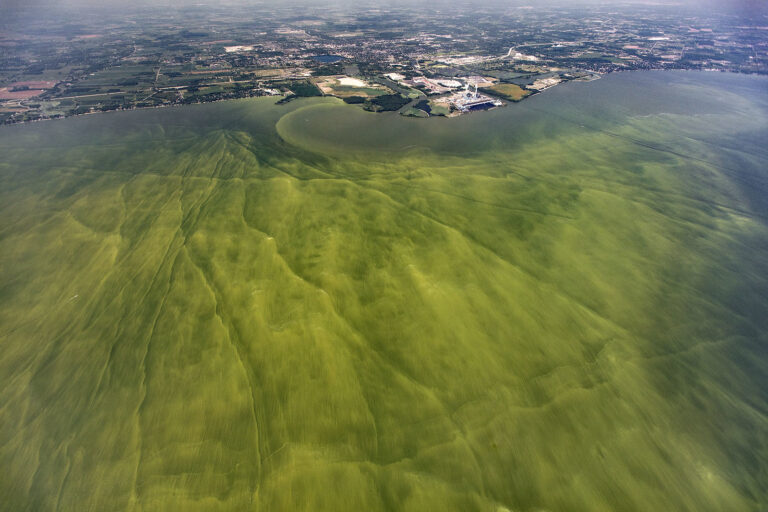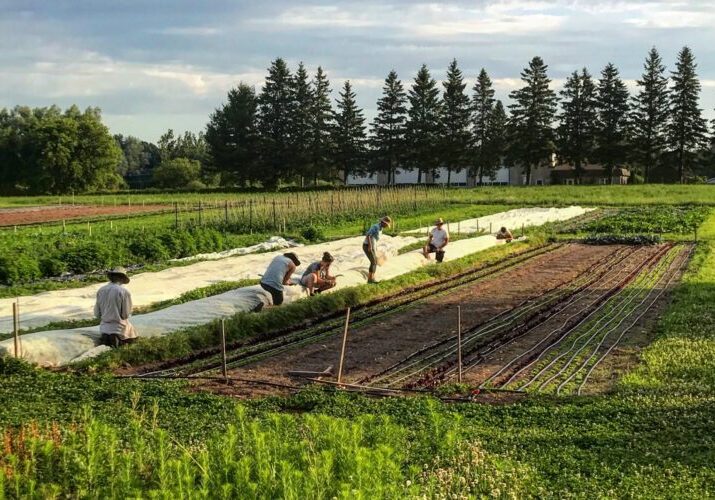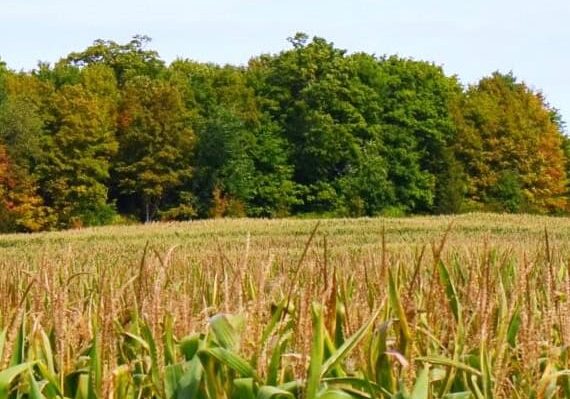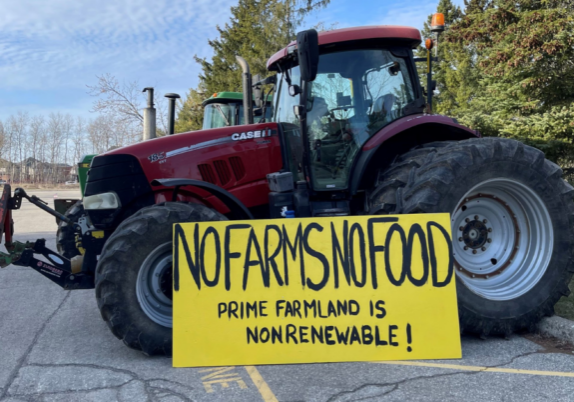Media Release: Farmers are Eager to Clean up Lake Erie, will Governments Listen?

A New National Farmers Union – Ontario Survey and Report Explores Agriculture’s Algal Bloom Problem & Its Solutions
Treaty lands and territory of the Mississaugas of the Credit (Guelph, ON) (August 29, 2024) – Lake Erie algal blooms are an agricultural byproduct that farmers want to stop producing.
For the past decade, excess phosphorus from synthetic nutrient and manure runoff from farms on both sides of the U.S.-Canada border have been the dominant cause of the annual algal blooms that have created dead zones, killed fishes, sickened swimmers and boaters, and plagued Lake Erie’s water health.
As of mid-August of this year, the Western Lake Erie algal bloom is a whopping 620 square miles and growing.
Canada and Ontario committed to a 40% reduction in phosphorus loads entering the Lake Erie Basin by 2025, but farmers and water protectors are still waiting to hear what actions have been taken and how they might help.
For farmers who take pride in being land and water stewards, the persistence of these agriculturally-caused algal blooms is distressing.
“We want to be part of the solution, not the problem,” says Don Ciparis, a conventional grain grower in Elgin County. “We wish to initiate honest and difficult conversations about what we can do as farmers to advance an environmentally-responsible agriculture sector in this province.”
To that end, the National Farmers Union-Ontario (NFU-O) announces the release of “Ontario Farmers for Agricultural Conservation: An NFU-O Report & Survey on Advancing Best Nutrient Management Practices.”
Over three quarters of the 246 Ontario farmers who took part in this study believe they have an important role in protecting water quality and a majority expressed concern about the persistence of toxic Lake Erie algal blooms.
The NFU-O is keen to sit down with the provincial and federal governments, and other agricultural organizations, to develop robust policy to support the critical role of farmers in maintaining healthy soils and waters.
Instead of taking commercial fertilizer suppliers’ advice at face value, farmers want the Ontario Ministry of Agriculture, Food and Agribusiness (OMAFA) to reintroduce comprehensive extension services that provide unbiased nutrient guidance and free annual soil testing for all farm operations.
The NFU-O is also calling for a Canadian Farm Resiliency Agency to coordinate a rapid, science-guided, and least cost transition to financially secure, emission-minimizing farms and food systems.
Farmers shouldn’t have to choose between a fair income and water health. With survey respondents reporting that crop farmers spend, on average, one-fifth of their input costs on fertilizer, we are overdue for a public education campaign that provides farming strategies that maximize profit, not yield and help farmers arrive at “least cost crop production.”
The existing public and private grants, subsidies, and cost-share programs that support best agricultural conservation practices need to be expanded. Financial supports to lessen nutrient use and/or support nutrient retention should be easy to apply for, equitably administered, and long enough in duration to measure the efficacy of any intervention.
Almost half of the farmers surveyed are also interested in exploring solutions that go beyond the voluntary carrot. Participation rates in voluntary programs remain stubbornly low, and the agricultural operations that decline to reduce nutrient use, follow best management practices, or undertake naturalization projects are giving the entire agricultural sector a bad rap.
“Many farmers try to do everything just right while the neighbour down the road just doesn’t seem to care. This can be very frustrating,” said one farmer survey respondent.
The NFU-O recommends exploring how participating in agricultural tax and federal program incentives could be made cross-compliant with the adoption and maintenance of on-farm agricultural conservation practices. This could include incentivizing farmers who participate in the federal AgriInvest program who have enacted proven ecological improvements. Or, at the provincial/municipal level, we would like to pursue a discounted conservation property tax rate that is tied to specific agricultural conservation practices.
We also recommend following the lead of British Columbia farmers who worked with the province to develop specific synthetic fertilizer regulations. Any synthetic fertilizer guidelines would work in tandem with the manure regulations within Ontario’s Nutrient Management Act (2002). These regulations could include regular soil testing and OMAFA supportive interventions whenever these tests reveal elevated nutrient levels. We will also need to ensure that any new regulations, along with the ones already covered in the Act to regulate greenhouses and manure storage and application, have adequate compliance, monitoring, and enforcement both to be effective and to gain the public’s trust.
Ontario farmers want to be good stewards to our land and water; they want to grow food, not toxic algal blooms. If our governments are serious about their commitment to reduce Canada’s Lake Erie phosphorus loads by 40%, it’s high time they sit down with farmers and put all the policy and regulatory options on the table.
Together we can make Lake Erie a healthy ecosystem; we have no time to lose.
-30-
For more information:
Max Hansgen,
President, National Farmers Union–Ontario
president@nfuontario.ca, 613-464-1251








